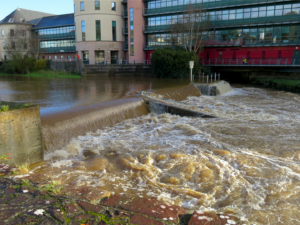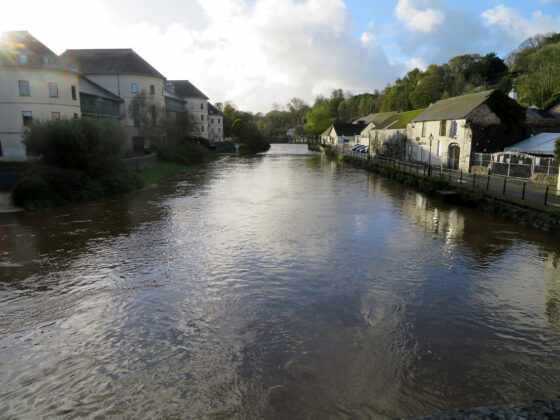
Tour company’s failures contributed to paddleboarder deaths, report finds

The deaths of four paddleboarders in south-west Wales were “avoidable” and were the result of inadequate planning by a tour group, a report by the Marine Accident Investigation Branch (MAIB) has concluded.
The leaders of the paddleboarding group lacked “the training, experience or qualifications to lead the tour,” the report into the accident at Haverfordwest, Pembrokshire, states.
Paul O’Dwyer, 42, from Port Talbot; Morgan Rogers, 24, from Merthyr Tydfil; Nicola Wheatley, 40, from Swansea; and Andrea Powell, 41, from Bridgend, died on 30 October 2021 after drowning on the Cleddau River.
They were part of a group of nine stand-up paddleboarders who had joined a commercial river tour from Haverfordwest to Burton Ferry, Wales. The tour, which departed at 9am, comprised two tour leaders, the wife of one of the leaders and six paying participants.
Army veteran O’Dwyer was one of the leaders of the excursion, which had been organised by the Salty Dog Company of Port Talbot. He was travelling at the rear of the group.
The other tour group leader, also the owner of the Salty Dog Company, survived the incident but has not been named for legal reasons.

Haverfordwest weir
When the group descended Haverfordwest Town Weir, four of the group became trapped at the weir by the hydraulic towback and got into difficulties. There was “no means of escape”, the report finds, due to the strong recirculating currents created by the towback.
The report says that the leaders’ planning and preparation for the tour was inadequate and overlooked the extreme hazard posed by the weir. It adds that signage at the launch point and on the river did not adequately alert participants to the risk of descending the weir.
In addition, the clothing, buoyancy aid and leash-wearing by participants did not follow recognised guidance.
The report also criticises UK stand-up paddleboarding, saying that safety messaging and training governance is inconsistent and there was no means for the participants to judge the proficiency of training and tour providers.
“This was a tragic and avoidable accident that had a profound effect on the participants and the families of those that lost their lives,” says Andrew Moll, chief inspector of marine accidents.
“Stand-up paddleboarding is probably the fastest growing UK water sport, with participation in recent years growing by nearly 300 per cent. However, like all water sports, those that buy or rent a paddleboard need to understand the risks,” he says.
“First, if you are stand-up paddleboarding wear the right equipment. Always wear a buoyancy aid and, in moving water, wear a quick release waist leash so you can separate yourself from your paddleboard if it becomes trapped.
“Second, remember that in certain conditions weirs can develop treacherous hydraulic towbacks that can trap and drown you. Authorities responsible for weirs should ensure they have assessed the risks to the public and have implemented appropriate control measures such as signage, railings, warning buoys or even barriers to keep the public safe.
“Third, looking to the future, it is critical that the governance of this fast-growing sport improves so the public receive clear, consistent safety advice and are able to recognise businesses that are competent to deliver training, tours and expeditions.”
The report’s authors have made safety recommendations, including risk assessments from Pembrokeshire council and Milford Haven Port Authority, and reviewed governance of the sport from the UK National Sports Council.
The report also urges UK national sports councils to develop and publish a national governing body guide to good practice in sport safety, while continuing their review of the governance of stand-up paddleboarding in the UK.
Following the incident, a woman from the South Wales area was reportedly arrested on 6 November last year on suspicion of gross negligence manslaughter. She has been released under investigation.
